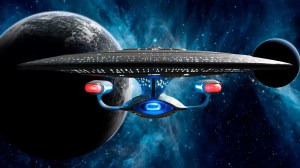The “Eastrail 177 Trilogy” gets its culminating chapter in Glass, and the result is a film that brings all the various pieces of the franchise together, without ever truly becoming more than the sum of those disparate parts. Instead, the film is at once a great spiritual epilogue to Unbreakable, a fun sequel to Split, and a proud (pretentious?) sermon from Shyamalan himself.
Videos by ComicBook.com
Glass arrives 18 years after Unbreakable hit theaters and became a cinematic milestone, the first film to truly explore the idea that comic book movies and high-art cinema could be one and the same. By the time Split arrived in 2016, fans had all but given up hope that Shyamalan would revisit Unbreakable, which is why it was such a pleasant surprise when the former pulled the last-minute twist of opening the door to a wider Shyamalan movie universe.
Glass picks up soon after the events of Split, with Unbreakable‘s superman David Dunn (Bruce Willis) now a full-fledged vigilante hero known as “The Overseer,” who regularly patrols the streets of Philadelphia keeping check on evildoers. When David picks up the trail of Horde (James McAvoy) during one of the killer’s horrific feeding cycles, the resulting battle lands both exceptional individuals in an institution and under the watchful eye of Dr. Ellie Staple (Sarah Paulson). Dr. Staple claims that David and Kevin Wendell Crumb are both extreme cases of superhero delusion, and she embarks on a bold experimental study to help each man break through his delusion to reach a personal truth. However, that noble intent takes a serious turn when Dr. Staple adds David’s old nemesis Elijah Price (Samuel L. Jackson) to the mix. Although “Mr. Glass” has been catatonic and in decline for years, the new thrill of having not one, but two examples of real-life superhero specimens proves all the motivation the evil mastermind needs to take up his unholy mission again.
As stated, Glass is the case of a film that offers several entertaining pieces, but can’t pull those pieces into a coherent and unified whole. Shyamalan’s brooding and contemplative examination of comic book fantasy as real-world mythology in Unbreakable is alive and well in Glass, which stretches the theme of self-identity into a deeper contemplation of belief in one’s true self and talents — even in face of crushing skepticism and criticism. It’s that same theme which arguably creates the biggest schism in the movie, as the fictional story arcs of The Overseer, Mr. Glass, and The Horde seamlessly bleed into Shyamalan’s real-world thoughts about his own identity and talents as a filmmaker, which he clearly sees as visionary, revolutionary, and tragically underappreciated.
Indeed, the storyline for Glass comes with not-so-subtle subtext examining Shyamalan’s career, which will either delight or aggravate viewers depending on their current level of appreciation for the filmmaker. You can tell when the switch between fantasy and creative ego occurs, as Glass tends to become clunky and heavy-handed whenever Shyamalan gets too deep into his “I told you so,” sentiments. This film’s very existence is a victory lap of sorts for the filmmaker, who never thought he would be given the chance to complete his original vision for an “Eastrail 177 Trilogy,” and is not ashamed of celebrating that win. Shyamalan uses Jackson’s Elijah Price as the metaphorical vehicle for his own career, which stalled after its early 2000s heyday, and is only now clawing out of the fog of failure. Glass is, in a larger sense, Shyamalan’s proclamation that he (long before the Chris Nolans of the world) was the trailblazer regarding how comic book movies could at once be cinematic art and big box-office draws, which is one of his more pretentious moves as a filmmaker (and that’s saying a lot).
What saves Glass from going completely off the rails as pure self-serving indulgence by a filmmaker are the performances from both Samuel L. Jackson and James McAvoy. Jackson manages to turn his function as a metaphorical vehicle for Shyamalan into a wonderfully self-aware, slow-burn performance, wherein the spiritually broken Elijah finally grows into the full-fledged version of Mr. Glass he’s always believed himself to be. Meanwhile, McAvoy is in a different movie altogether (a well-deserved Split sequel), and commands that lead role deftly, stealing every scene he’s in with a wider and more eclectic showcase of the various personalities inside Horde. The often comedic scenes of Horde going through rapid personality changes is very much out of step with brooding spirit and tone of Unbreakable, which makes Glass feel like it suffers from similar disassociative-identity issues as poor Mr. Crumb. There are a few twists thrown in to keep Shyamalan’s number one brand signature alive, only it now feels like those “gotcha!” moments are looked at as being thin gimmicks by the filmmaker himself, as their impact is more muted and forgettable than ever before.
For longtime fans of Shyamalan, Glass is ultimately a movie that is a fun retrospective on Shyamalan’s entire body of work, combining the broody artsy sophistication of his early work, his pulpy (and disappointing) blockbuster attempts of the late 2000s, and the oddball niche of horror/comedy he’s discovered in his 2010s resurgence. However, for moviegoers who haven’t been ride-or-die Shyamalan faithful, or just wanted something more akin to a standard superhero blockbuster from Glass, this film will only deliver frustrating bits of what they really want, padded with a whole lot of what they don’t.
Rating: 3 out of 5
Glass opens in theaters this week. It is 2 hours and 9 minutes long, and rated PG-13 for violence including some bloody images, thematic elements, and language.








